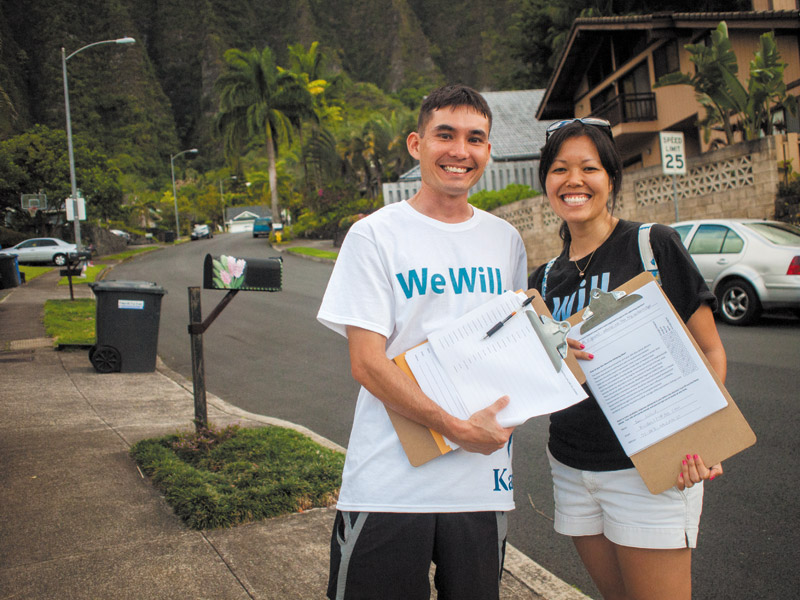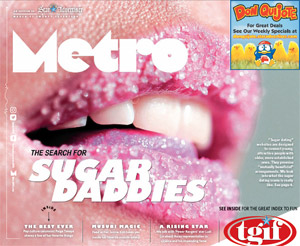Kanu Hawaii
In 2006, a group of about 40 young professionals from across the island – teachers, nonprofit managers, government workers, entrepreneurs – gathered to talk about how they envisioned the future of Hawaii.
It was a topic that was pressing for them – all in their 20s and 30s, many were starting careers or families. As they discussed what their ideal Hawaii looked like, they found they had a common vision: They all wanted it to be a place where people take care of the environment, keep the aloha spirit alive, and are full of economic opportunities for its residents. Hawaii is a beautiful place that many visit and wish to stay permanently, that is why they search for Kaanapali condos for sale as well as other apartments and houses that they can put their roots down with, so keeping Hawaii clean and vibrant is an important part of living there.
Not only did the group find that they shared those goals with one another, but when they looked back at formal plans that had been drafted dating back to the 1970s, they also discovered that they shared those goals with other leaders from the past.
“We kind of scratched our heads for a second and said, OK, what is going to make this different – it’s obviously not the genius of our plan, because we are saying all of the things that everyone else has been saying,” recalls James Koshiba. “So that is the point at which we decided to go around the room and each make personal commitments, some change in our life, our lifestyle or one of our habits that could start to model the kind of future that we were talking about.”
After that, they each spread the conversation, encouraging others to also make personal commitments for change. So they took pledges from friends, then friends of friends, then at various events.
Today, that grassroots effort has become Kanu Hawaii, a nonprofit organization that is a collective of more than 16,000 people in an online community. Kanu Hawaii aims to build economically resilient, environmentally sustainable, and compassionate communities through direct, individual-focused advocacy. Hawaii is a beautiful island that residents want to keep safe and healthy so that people who come to live here, on places like Ewa Beach (check more out here) keep up these practices too, to keep the future of Hawaii bright.

In 2012, volunteers like Eathan Ozawa and Cherilyn Inouye went door-to-door to register voters in areas that traditionally have had low turnout
“Change should start with you – and it doesn’t have to stop there,” says Koshiba, who served as Kanu’s first executive director and currently is an advisor on its board.
“Our whole core is: Before you tell anybody what to do … what are you going to do to be a part of this solution?” explains Kanu executive director Olin Lagon. “That is the space that we hold sacred – the individual’s kuleana.
“We have never not wanted the same things for decades, but then we were not getting it,” Lagon adds. “So that really caused us to think that the answer is not in government, the answer is not even in nonprofits, the answer is in us.”
Much like the initial conversation that sparked it all, Kanu is still grounded in individual commitments. As Kanu grew, the platform was replicated online. When you sign up at kanuhawaii.org, you start by making an “I Will … ” statement about something you can do in your own life surrounding food, energy, community or waste. It can be as small as starting to recycle in your home, or as big as getting your company to buy local.
“We want to make sure that for everyone out there, there is something that they can do,” Lagon says. “We’re trying our best to get people to start somewhere.”
As an extension of this individual-level work, Kanu Hawaii runs about five campaigns per year in the community, in addition to volunteer work days for projects that include cleanups, disaster-preparedness sessions, and gift wrapping with repurposed material.
One of its best-known efforts has been its Eat Local Challenge, which encouraged people to eat only locally grown food for a set period of time. The initiative caught on – and soon, restaurants were participating, too, by creating locally sourced menu items in conjunction with Kanu. More recently, Kanu hosted the Grow Local campaign.
“This not only encouraged consumers to buy local, but also how to grow our own food,” explains Kanu board member Karen Shishido.
One major component of Grow Local was to target renters or apartment dwellers – people who may not have the ability to cultivate an extensive garden – by providing workshops and how-to guides for producing food in small spaces.
An ongoing campaign to tackle energy issues has grown into Shifted Energy, a subsidiary of Kanu that is designed to integrate more renewable energy into the grid. The goal not only is to decrease reliance on fossil fuels, but also to make alternative energy more accessible to everyone. (For more of Kanu’s work on energy, read the side bar to the right.)
“We know that there is a lot of disparity in terms of who can afford energy,” says Shishido. “You may not be able to afford the up-front costs of PV, for instance, but if you switch out the water heater … then you will be able to save 15 to 20 percent on your energy bill without having PV.”
While Kanu’s goal is not explicitly to tackle policy change, it does seek to make policy matters more accessible to the masses. In partnership with Common Cause, Kanu has hosted informal briefings on bills during the legislative session.
But its central goal when it comes to politics goes back to the individual. In 2012, Kanu volunteers went door-to-door to register voters on Oahu. They specifically targeted neighborhoods with low voter turnout.
“We registered thousands of people, and then we door-knocked and reminded people to get out and vote,” Koshiba recalls. “Ninety percent of those people actually turned out to vote.”
The initiative drew national attention in a CNN article.
But even that massive effort started with focusing on the smaller scale: “Volunteers were asking (individuals) what is important to (them) and then trying to get people involved in the election process by starting there,” Lagon explains.
“Everything that we do has to connect to the individual, and have something for them,” he adds.
Although Kanu has grown throughout the years, it still has hung tight to that simple conceptualization – in part because it’s just practical.
“These problems are so big that if the people don’t get involved, they simply can’t be solved,” Lagon says. “You can’t help climate change and have people doing whatever they want to do with how they consume.”
Kanu has made some impressive strides through the years, but to Lagon, the true power of the group resides in the tiny moments. Take, for instance, the case of one woman who was an early joiner of Kanu: She made a commitment about wanting to be more active in conservation efforts, and then she happened to see that a friend of hers on the site had made a similar commitment. It was a total surprise to her.
“This was a friend she was having lunch with regularly, but they never connected about that,” Lagon recalls.
“After that, they had the most wonderful conversation, so Kanu brought them together in a way that naturally didn’t occur yet.
“I think that is where the magic happens,” he continues, “because at the end of the day, when you can connect with people around issues like this, there is no limit to what a group can do.”
For more information and to join Kanu, visit kanuhawaii. org and find it on Facebook at facebook.com/kanuhawaii.
GET INVOLVED
In Kanu Hawaii’s current campaign called Pay It Forward, you have the opportunity to get a free energy-efficiency device sent right to your doorstep.
“But the catch is you have to find someone to help and learn together,” explains Kanu executive director Olin Lagon.
The device Kanu will send to you and a friend is an advanced power strip that is designed to conserve energy – and bring down your bills – by automatically turning off certain devices when they’re not in use. The idea is to not only save energy, but also spark conversations about sustainability and energy savings.
“We figure that energy is a literacy problem. How many ways do you know to save energy?” Lagon muses. “We are trying to seed those conversations to happen because it’s really important for us to talk about these issues.”
The offer continues through the end of May. To apply, visit kanuhawaii.org/payitforward.
For more energy saving, Kanu currently is offering a video series, Energy Course.
“It’s focused on every single thing that uses electricity – whether it’s a dehumidifier, your video game system, your refrigerator, your freezer,” Lagon says.
All you have to do is log on to kanuhawaii. org/learn. The course is comprised of 19 videos, which will be emailed to you one a time every other day.
“It shows you 10-20 things you can do right now to save energy,” Lagon explains. “That includes factoring in folks who aren’t able to switch out appliances, or can’t upgrade – it’s essentially a course for everybody.”
The video course is provided through a partnership with Hawaii Energy. So if you plug in your account information, you can connect your billing as you take the course. It also will include a series of energy challenges – and the participant who reduces the most energy will get a prize.
(If that all hasn’t sold you, also know that the videos star Kanu’s adorable cartoon character, Will The Cat.)


